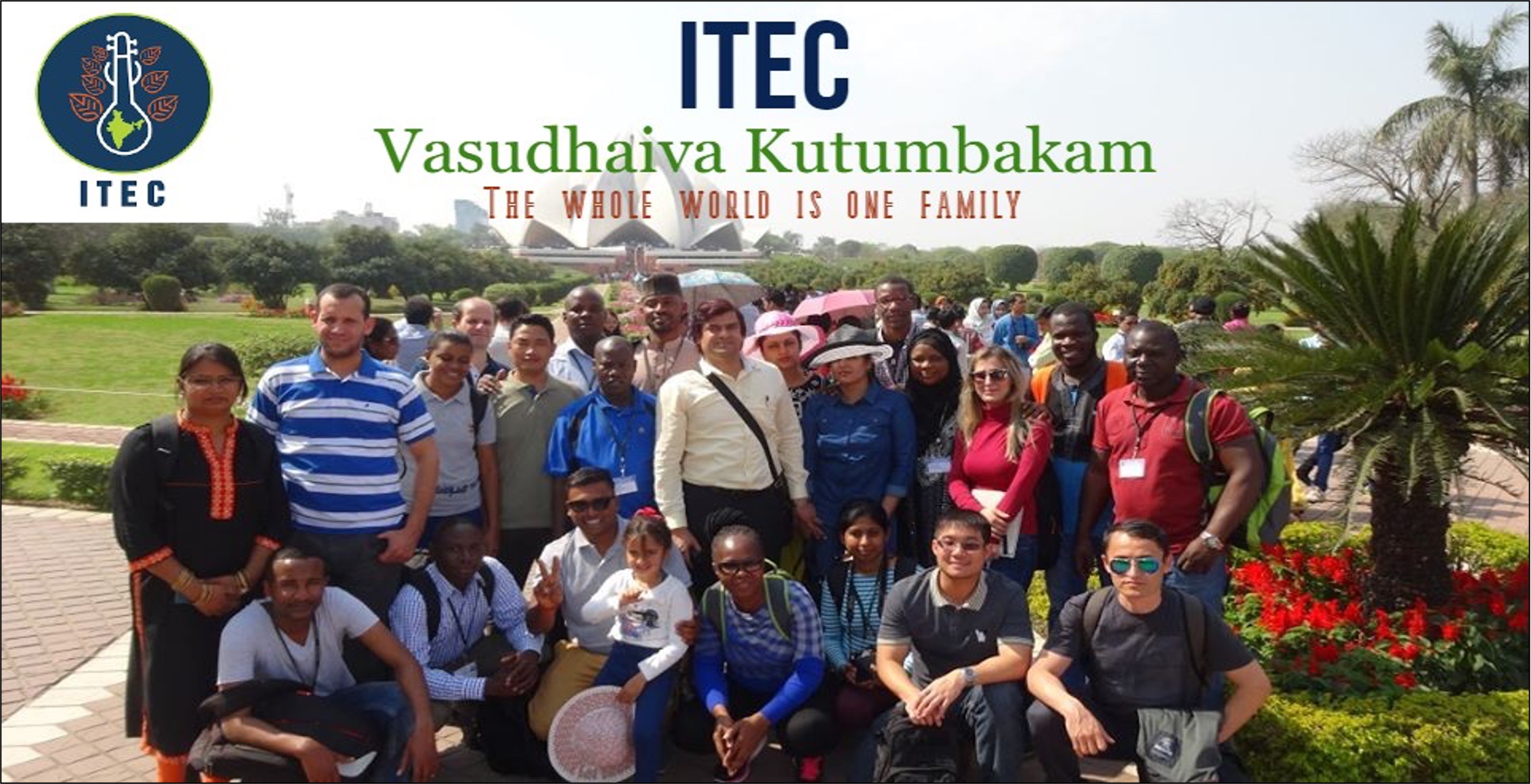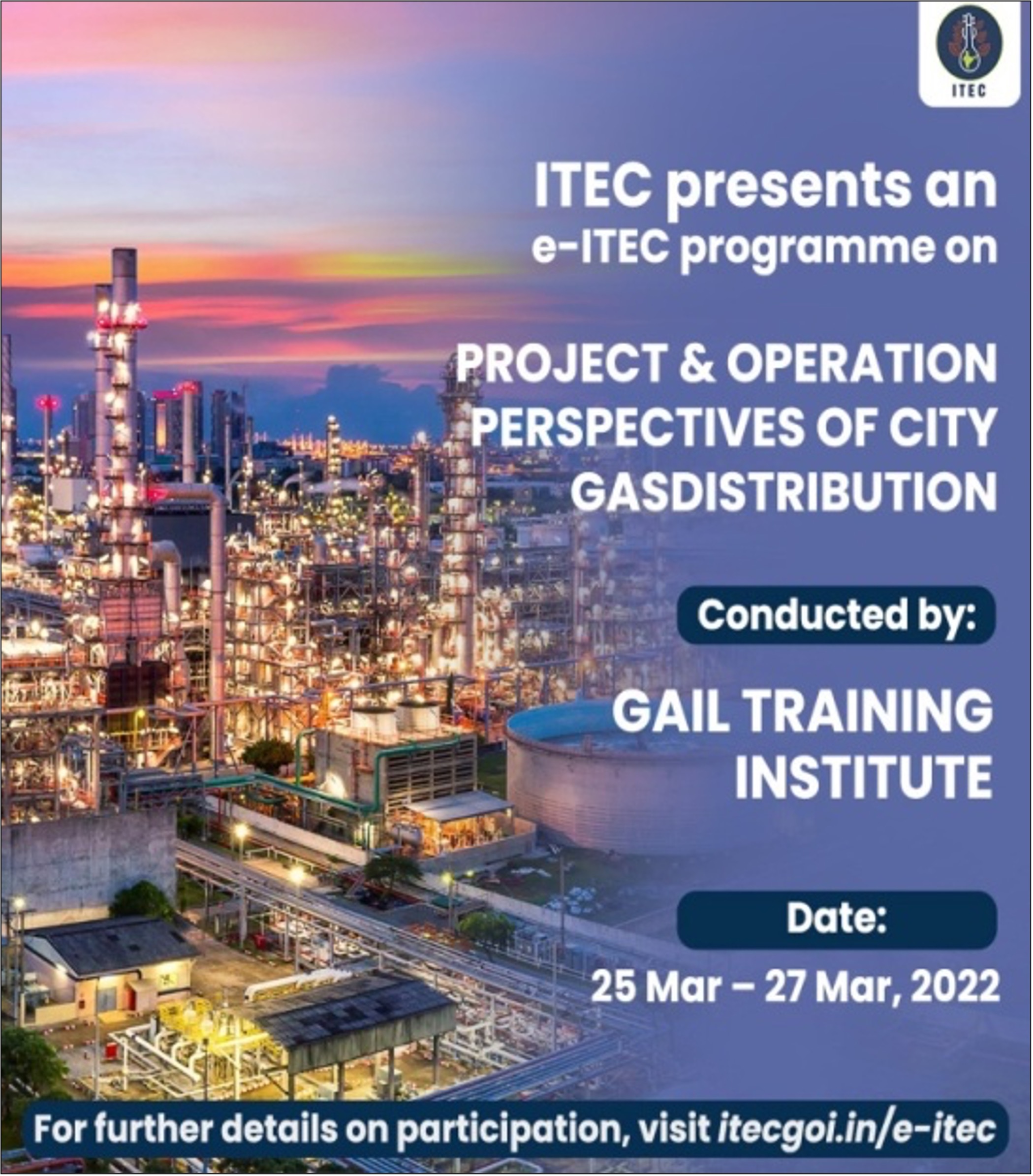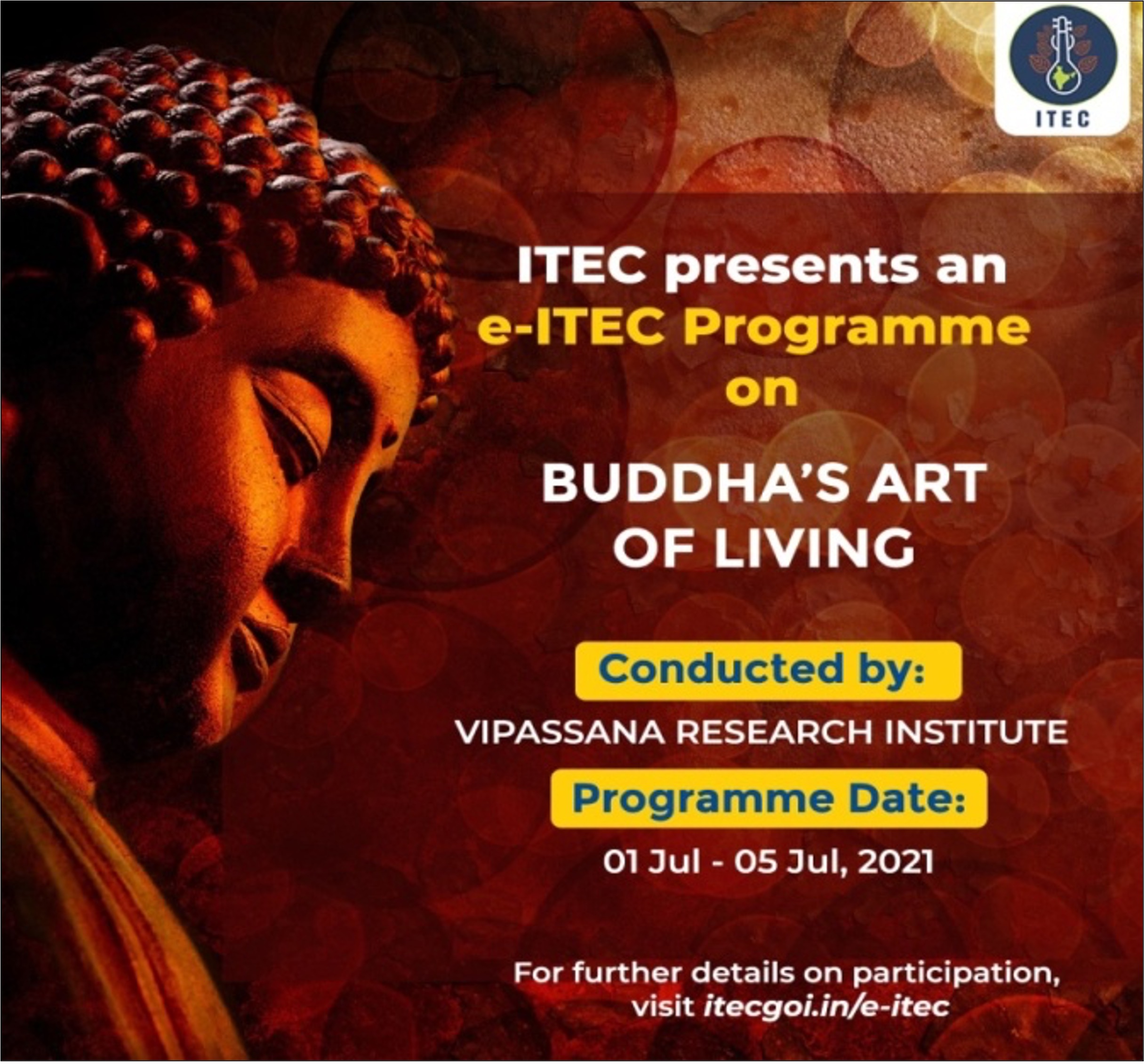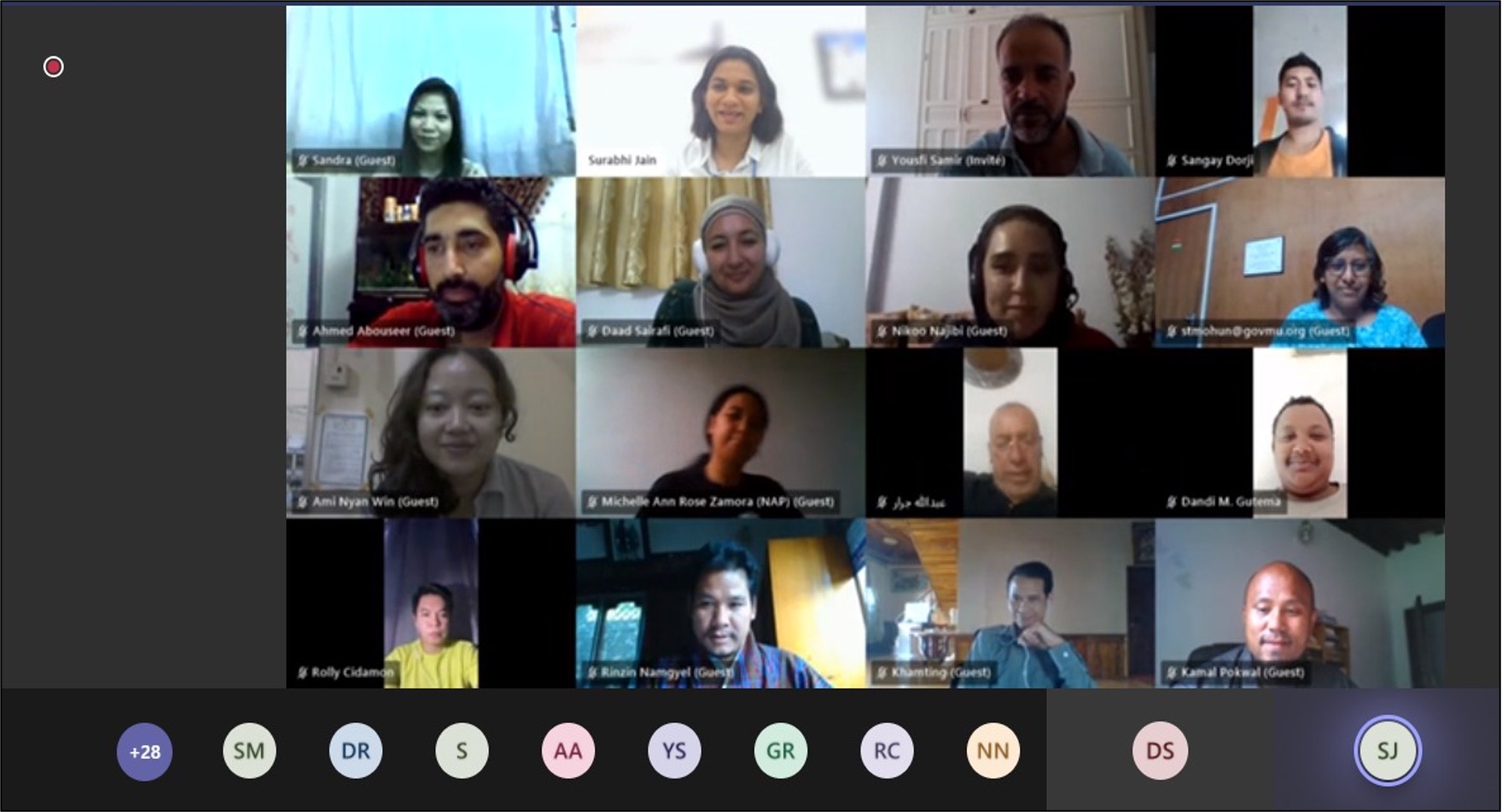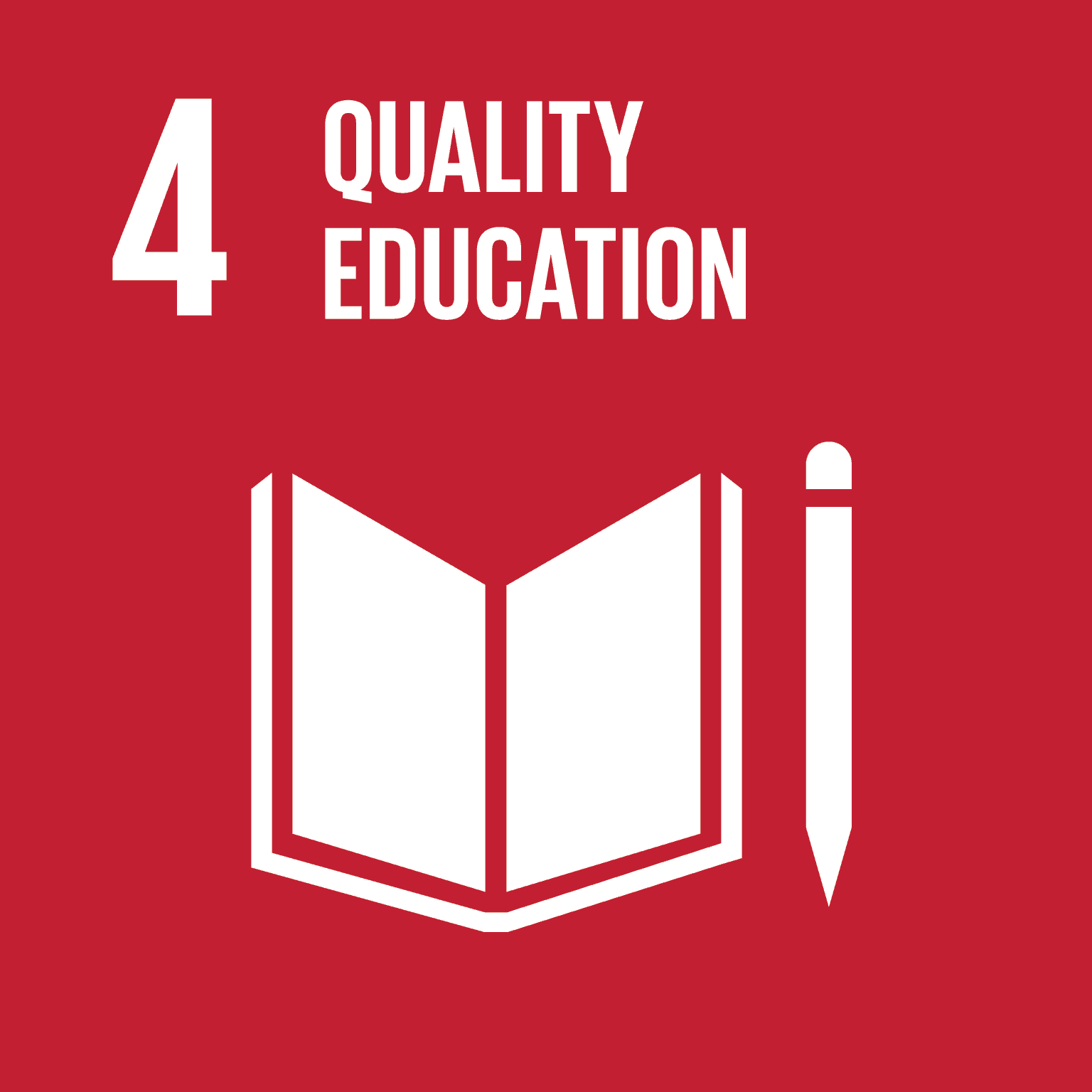 Indian Technical and Economic Cooperation Moves Online
India’s long-standing skills development programme helps countries around the world close skills gaps
Indian Technical and Economic Cooperation Moves Online
India’s long-standing skills development programme helps countries around the world close skills gaps

Challenges
According to the World Economic Forum, skills gaps are major contributing factors to underemployment and unemployment. Skills deficiencies and inequities are expected to further intensify with the fourth industrial revolution, with skills training being a major driving force in the knowledge economy. The rapid changes and advances in technology make updated and requisite skills even more important.
The lack of appropriate skills among many youth around the world is a cause of great concern, especially for countries of the global south. Lack of adequate skills adversely affects the quality and quantity of industrial output. Skill deficits not only make individuals unemployable but they also hamper national economic growth and development. In the context of the constantly evolving world of work, capacity building and bridging the skills gap are among the greatest challenges facing the global community.
Towards a Solution
The Indian Technical & Economic Cooperation (ITEC) & e-ITEC Programme of the Ministry of External Affairs of the Government of India has been addressing skills development since 1964. Regional cooperation and developmental assistance have always been at the heart of Indian foreign policy in the spirit of "Vashudaiva Kutumbakam" (the whole world is one family). India’s developmental partnerships have ranged from providing credit, developmental and humanitarian grants, technical consultancy, disaster relief, academic scholarships and capacity-building training.
The ITEC programme builds capacities of nationals belonging to ITEC partner countries. Presently,161 countries from Asia, Africa, East Europe, Latin America, the Caribbean, the Pacific and small island states are ITEC partners. A digital platform, e-ITEC, is a newer extension of ITEC capacity building initiatives, which was established in the wake of the Covid-19 pandemic. With Covid-19 lockdowns and restrictions, the various ITEC training programmes could not be conducted in physical mode which necessitated the introduction of e-ITEC. However, the benefits of providing training in a cost-effective manner, the possibility of training a large number of students from a wide range of geographies and the high participation rate from member countries made the e-ITEC initiative sustainable going forward.
The ITEC programme encompasses both civilian and military training, including study tours and deputation of Indian experts in foreign countries for consultation to promote development activities.Each financial year, a substantial number of scholarships are granted to ITEC partner country nationals for capacity building. About 14,000 scholarships were provided in 2019-2020 alone. The training courses for capacity building are organized by the premier public and private institutions in India, such as the Indian Institute of Technology, Indian Institute of Science, Indian Institute of Foreign Trade, Lovely Professional University, National Institute of Technology, Post Graduate Institute of Medical Education and Research and others. Training courses of varied duration on topics, such as agriculture, engineering and technology, environment, renewable energy, government functioning, human resource development, women’s empowerment, entrepreneurship, health, etc., are offered under e-ITEC as well as onsite ITEC programmes. In addition to these traditional courses, training on emerging issues, such as virtual reality, cyber technology, artificial intelligence, nanotechnology, the Sustainable Development Goals and more are also being offered. More recently developed training programmes are covering power generation, gas distribution, digital leadership, auditing in an IT environment, environmental impact assessment, disaster management, corporate governance and solid waste management.
Its inception, ITEC was a bilateral initiative. Over time, the programme has been collaborating with a variety of regional, multilateral and international organizations around the world, among them the Association of Southeast Asian Nations (ASEAN), the Bay of Bengal Initiative for Multi-Sectoral Technical and Economic Cooperation, the Mekong-Ganga Cooperation, the African Union, the Afro-Asian Rural Development Organization, the an African Parliament, the Caribbean Community, the World Trade Organization, the United Nations Economic Commission for Africa, and the Indian Ocean Rim–Association for Regional Cooperation and India-Africa Forum Summit. Collaboration with such a wide variety of organizations makes ITEC truly a South-South and Triangular cooperation initiative.
Over the years, the ITEC programme has trained more than 200,000 participants. In 2021, 170 e-ITEC courses were conducted by 68 Indian institutions with approximately 5,600 participants from 83 countries of the global South. Sixty-seven country-specific courses were conducted under the e-ITEC initiative during 2021. The designing of customized courses and programmes by ITEC as requested by partner countries makes this initiative innovative and highly demanded.
The ITEC initiative is extremely adaptable and India has encouraged other Asian countries, such as Malaysia (through the Malaysian Technical Cooperation Programme) and Thailand (through the Thailand International Cooperation Agency) to start similar initiatives. Offering training in highly demanded traditional subjects, emerging technologies and country-specific customized courses has helped ITEC to be sustained for more than five and half decades. The initiative’s adaptation to digital platforms under e-ITEC will ensure that this novel initiative continues to exist for many years to come and to help countries around the globe make progress toward the Sustainable Development Goals.
Contact Information
Countries involved
Supported by
Implementing Entities
Project Status
Project Period
URL of the practice
Primary SDG
Primary SDG Targets
Secondary SDGs
Secondary SDG Targets
Similar Solutions
| NAME OF SOLUTION | Countries | SDG | Project Status | |
|---|---|---|---|---|
Accelerating the Transformational Shift to a Low-Carbon Economy in Mauritius Towards supplying 35 percent of the country’s energy needs with renewables by 2025 |
Global, India | 05 - Gender Equality 09 - Industry, Innovation and Infrastructure 13 - Climate Action | Ongoing | View Details |
Accelerator Labs Network Following collective intelligence methods to address emerging sustainability challenges and the growing demand for local solutions |
Global, India | 08 - Decent Work and Economic Growth 13 - Climate Action | Ongoing | View Details |
Accessibility of Financial Services and the Private Sector in Africa Maximizing the impact of financial cooperation on economic development and industrialization in Africa |
Global, India | 08 - Decent Work and Economic Growth | Completed | View Details |
Accessibility ToolKit Promoting accessibility as a cornerstone for inclusive digital development in Bangladesh. |
Global, India | 08 - Decent Work and Economic Growth | Completed | View Details |
ACP Business-friendly Supporting business-friendly and inclusive national and regional policies, and strengthening productive capabilities and value chains |
Global, India | 08 - Decent Work and Economic Growth 17 - Partnerships for the Goals | Ongoing | View Details |
